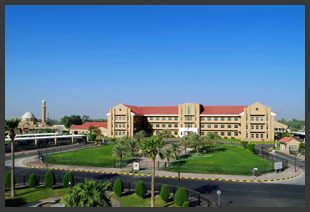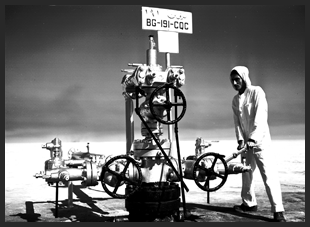Kuwait Energy: Investments into the Future
“In Kuwait , we feel that we are part of the world. When there was a high demand for energy , and oil in particular, Kuwait and Kuwait Oil Company responded positively by producing the maximum in 2008. In regard to Kuwait diversification , the long term concern is there. Kuwait should seriously think about diversifying sources of income for the country.” says Sami Al-Rushaid, Chairman and Managing Director at Kuwait Oil Company
As all Arab oil states, Kuwait started to diversify its Kuwait economy during the last decade. For example, the government launched the construction of a container port on Bubiyan island as well as Silk City (arab. Madinat al-Hareer), a proposed 250 sq km mixed-use zone with hotels, a natural reservation and the Burj Al-Mubarak Al-Kabeer, a 1,001m high tower.
But those who think the oil industry is a relic from the past, are wrong. In Kuwait, oil contributes 95% of the annual federal budget. Kuwait is heavily reliant on oil. The higher energy prices, the better for the Kuwait economy and Kuwait budget. Kuwait oil development plan is to invest 82.5 billion dollars between 2008 and 2014 in developing its upstream and downstream capacities from 2.7 million barrels per day to 3 million barrels per day, with plans to reach more than 3.2 million barrels around 2013-2014. (Kuwait currently produces 3.15m barrels per day.)
Quo vadis oil price?
Major energy-importers such as Japan, Germany, France or the US do not like to hear it, but increasing energy prices indicate economic activity.
Economic activity is the lubricant for giants like Kuwait Oil Company (KOC), the “mother of all oil firms” which discovered the precious resource in Kuwait in 1938. Today, 8.4% of the world’s proven oil reserves are located under Kuwaiti soil and sea waters. As a founding member of the Organization of Petroleum Exporting Countries (OPEC), the ruling Al-Sabah family certainly knows its responsibilities in relation to production quotas and agreements within the 12-member cartel. 
“In Kuwait we are definitely one of the major oil producers and we play a role in the energy sector”, explains Sami Al-Rushaid , Chairman and Managing Director at KOC. “We feel that we are part of the world. When there was a high demand for energy, and oil in particular, we responded positively by producing the maximum in 2008. In regard to Kuwait diversification , the long term concern is there. Kuwait should seriously think about diversifying sources of income for the country.”
For firms like KOC, the flipside of higher oil prices is higher productions costs. For Sami Al-Rushaid, stable valuations at spot markets are preferable:
“The spike in oil prices wasn’t comfortable for us but we knew that it wouldn’t last. Over a long period of time we aim and hope that there will be some sort of stability.”
“There is no one on earth who can predict oil prices”, says Sara Akbar, Vice Chairman and CEO of Kuwait Energy. But the IMF and most of the bank analysts agree that in 2010 there is no way back to levels below U$50 per barrel.
Some 70 per cent of Kuwait’s reserves, which total some 101.5bn barrels, are located in the Burgan field. But the lion’s share of these fields has been exploited for 60 years. The country is in need of new production technologies. Many untapped fields in the West and North are associated fields, meaning that oil and gas lay side by side under the earth, and this makes downstream activities more complicated than exploring “pure’, non-associated fields.
Thanks to joint ventures with global industry leaders, Kuwait Energy CEO Sara Akbar is optimistic:
“Recently an extended technical services agreement was signed with Shell to help in the development of gas fields in northern Kuwait”, she says.
There are also the global operations that Ms. Akbar runs:
“We invest in the Ukraine, Russia, Latvia, Egypt, Yemen, Oman, Pakistan, and hopefully Iraq and Kuwait. We have a lot of operations and we always try to diversify our portfolio in order to maximize our returns and minimize our risks,” she explains.
But what is the idea behind the strong Eurasia bias? “Our investments in Eurasia are due to access to low value opportunities when we were trying to build our company and we have managed to enhance the potential of these assets”, Ms. Akbar answers.
